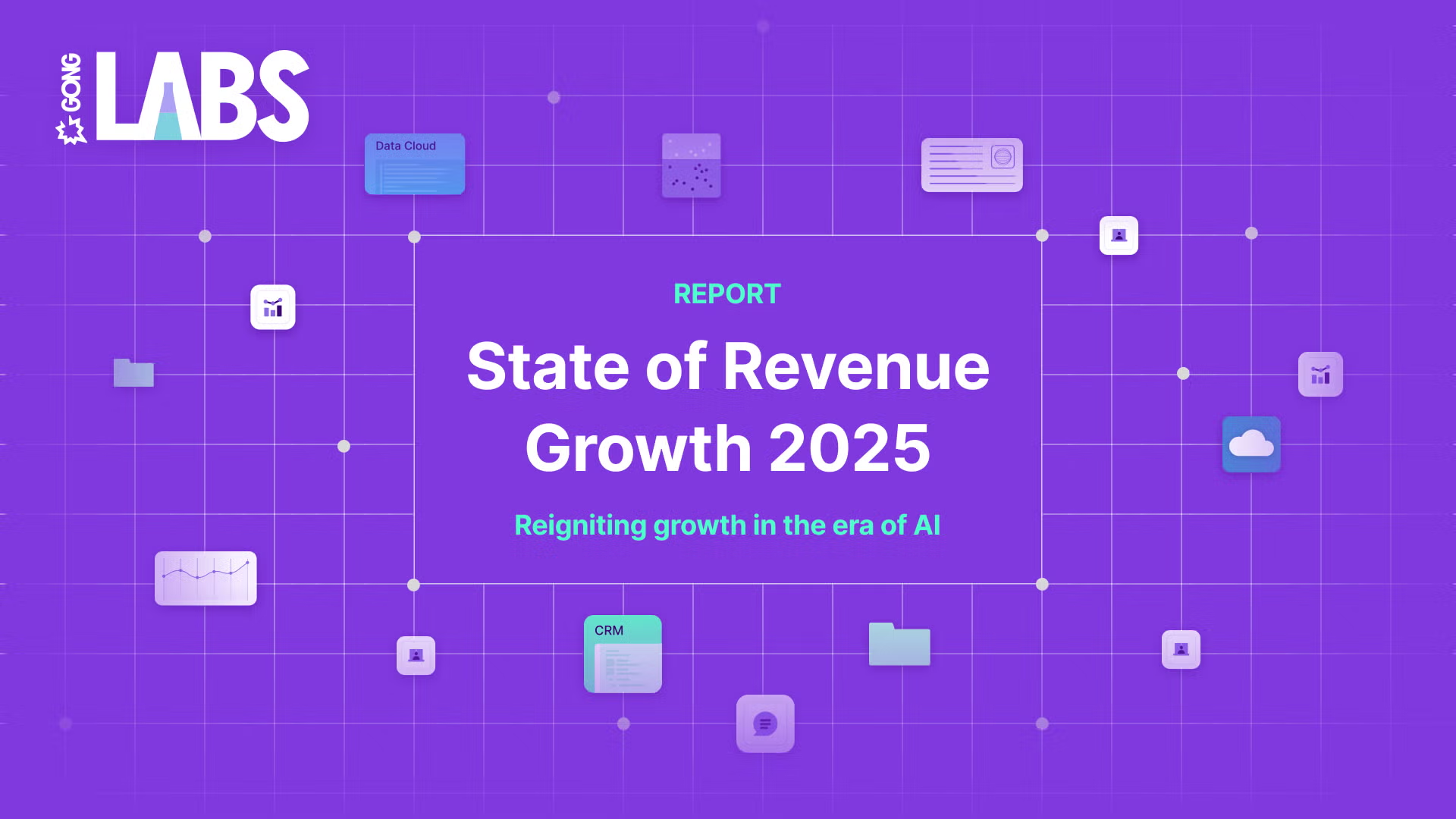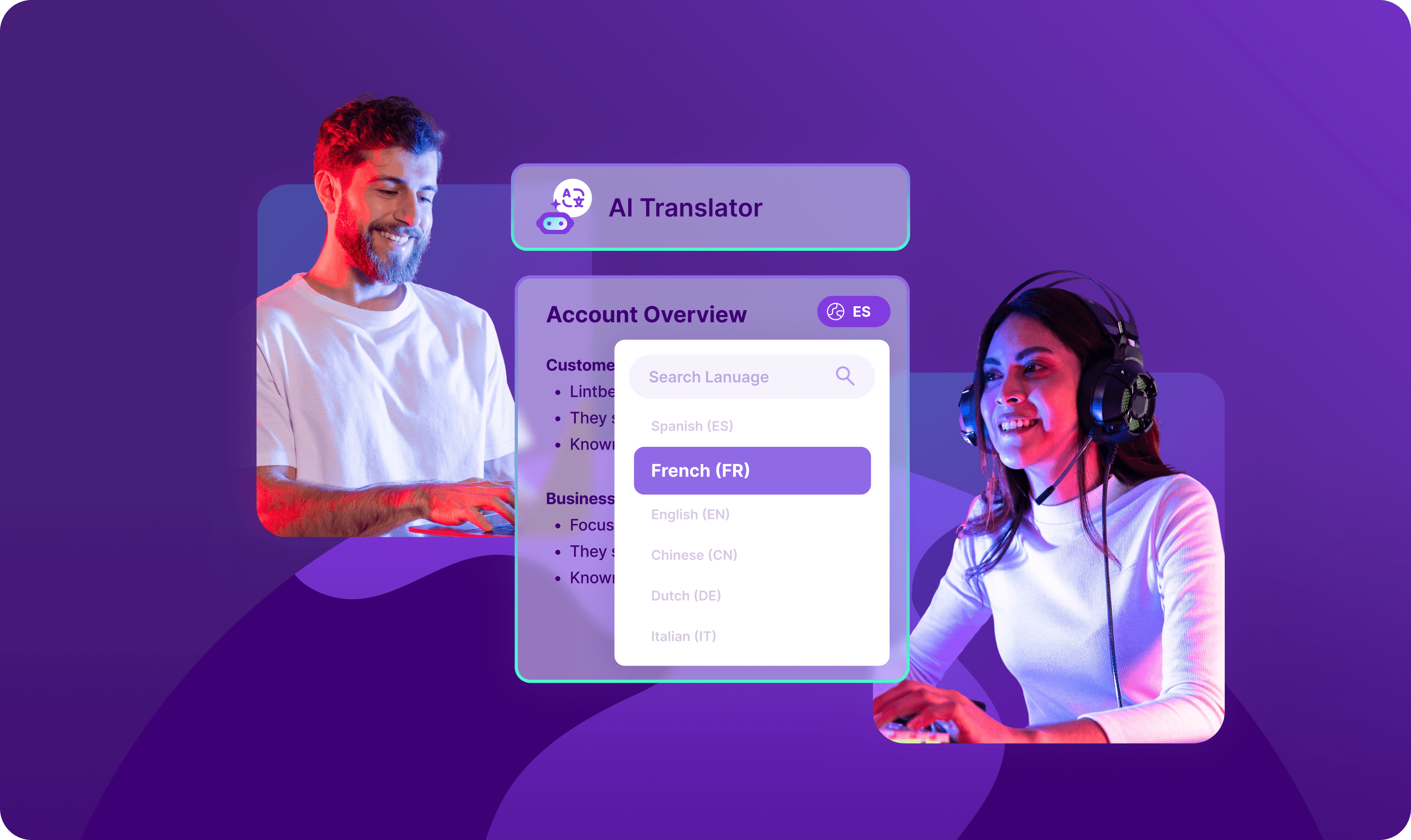Sales strategies
Effective sales call process: key steps for success

Chris Orlob
Content Author
Published on: February 11, 2018

Following a structured sales call process is vital to your success.
Outsiders of the sales profession often believe that salespeople are “fly by the seat of your pants” types.
The mental image they carry of salespeople is they are the type who “wing it.”
They think salespeople are improvisers.
But according to some compelling new data, the most successful salespeople don’t follow that stereotype at all.
The mega-successful reps are, apparently, some of the most methodical and strategically-minded people in the business world.
They’re like chess grand masters.
Let me explain…
How We Discovered The Ideal Sales Call Process
The data I’m about to with you is based on analyzing roughly 1 million B2B sales call recordings with artificial intelligence (AI) and natural language processing (NLP).
Every call in this data set was recorded on web conferencing platforms like Zoom and GoToMeeting
They were then transcribed from speech-to-text, and analyzed with highly advanced machine learning algorithms.
Within every conversation, topics (and related “subtopics”) were automatically identified: What topics were discussed, for how long, and at which points in the call?
The topic mapping in a single conversation looks something like this:

When we analyzed 1 million conversations like this aggregately, some interesting trends start to emerge.
Here’s our latest.
A Structured Sales Call Process
The most successful salespeople in our data set (those in the top 5-10% in their company) follow a more organized, repeatable sales call process than their peers.
The three data points I’m about to , when looked at together, support that idea.
Let’s take a look at the first one.
Star reps cover more unique topics on average during each call than their peers do.
They cover 15 unique topics during a 43 minute call, while their average-performing peers only cover 12.
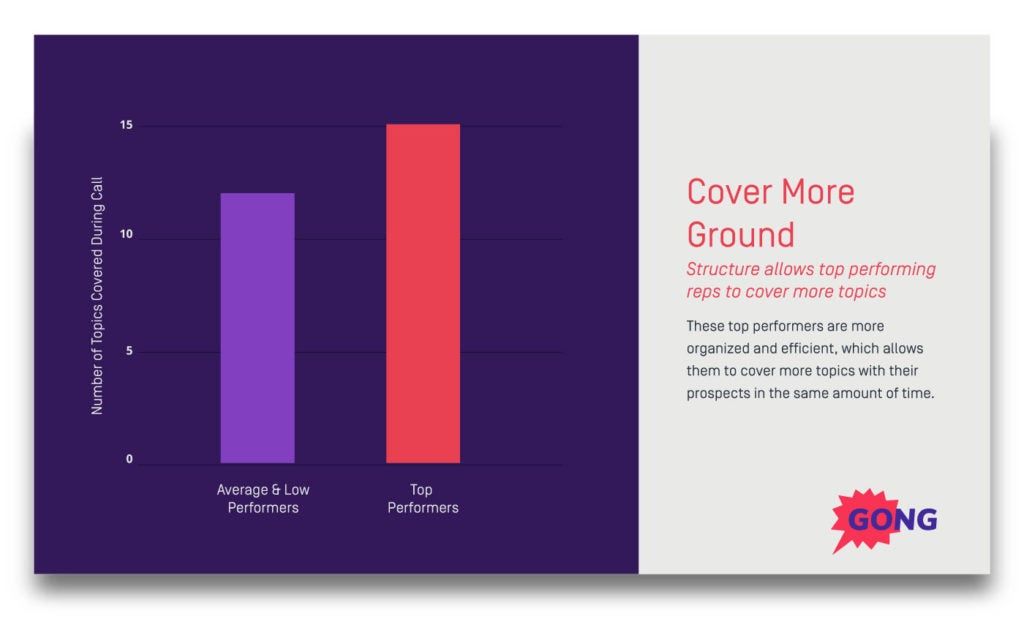
This data point seems surprising when you look at it in isolation
Don’t star reps cover fewer points during their sales calls for the sake of simplicity?
Hold your horses, there’s more to the story…
Even though “A-Player” reps cover more “unique” topics than their peers, the topics they cover fall into similar themes far more often.
In other words, when they switch topics, they switch to a naturally related topic.
Their conversations are sequential.
They go from Feature 1, to Feature 2. Or from Pricing, to Next Steps:
Average- and low-performing reps, by contrast, tend to “jump around” among unrelated topics that don’t fit into common themes.
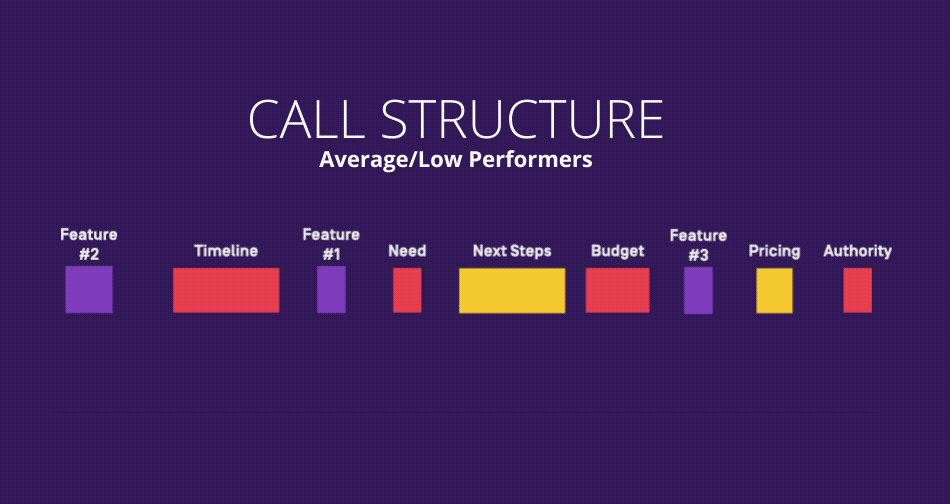
So even though top reps cover more unique topics, they cover fewer overarching themes.
Here’s the final data point…
The fact that top reps “cluster” their topics into themes like this has a natural byproduct: They switch between topics less often than their peers.
(15.6% fewer topics switches on average among top-performing reps).
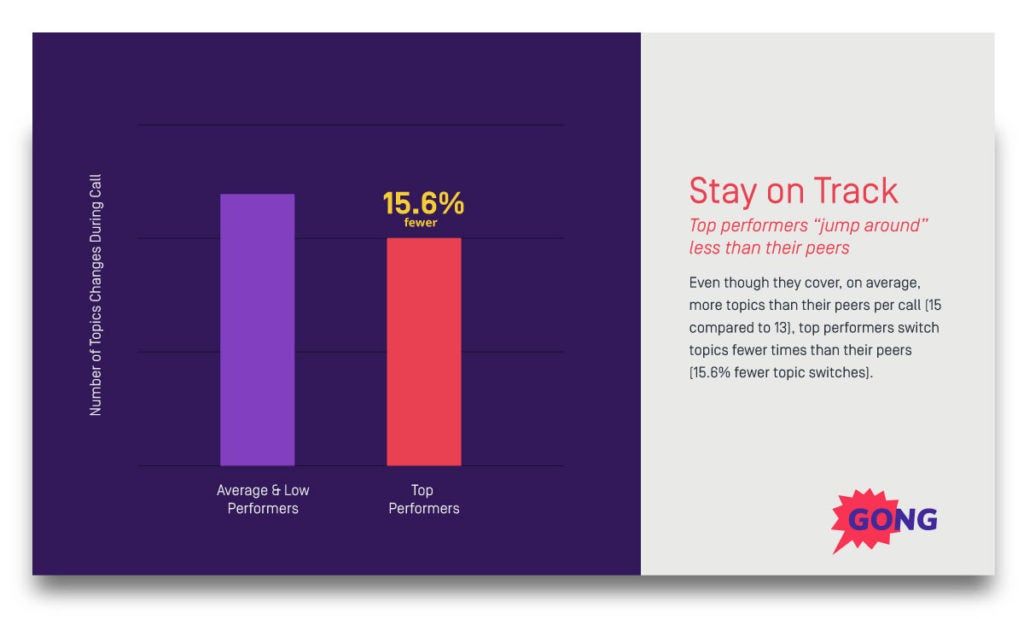
The Takeaway for Reps: Preparation
Superstar sales reps have a plan for their calls and follow an organized, structured sales call process from end-to-end.
They don’t wing it. They don’t bounce around.
Their conversations represent a well-rehearsed choreography, smoothly transitioning from one scene to the next.
The takeaway comes down to preparation.
Following a structured sales call process requires intention.
You have to think about how you’re going to navigate a complex conversation successfully from start to finish.
Simply mapping out what you plan to cover – and in what order – will put you light years ahead of everyone else.
The Takeaway for Managers: Sales Call Process Scoring
A great way to help your reps consistently execute a repeatable sales call process is through the use of call scoring.
Call scoring is when you review your reps’ live calls or call recordings, scoring them against a predefined process and other sets of criteria, such as sales techniques.
It works in two ways:
- Document the sales call process you want your reps to follow, breaking each step down into a scoreable line-item
- Review your reps’ calls and score them against the process you documented.
Here are some examples…
Did the rep properly set an agenda and “upfront contract?”
Did the rep ask the buyer x-amount of pain-related questions?
On a scale of 1-10, how well was the value proposition communicated?
Did the rep secure a concrete next step?
These are just a few examples you can add to your own call scoring process.
And by the way…
To help facilitate this kind of call coaching, we recently built Call Scorecards into the Gong.io platform.
Instead of bouncing between a raw call recording and a spreadsheet-based scorecard, now you can score calls right from the call review page in Gong.io:
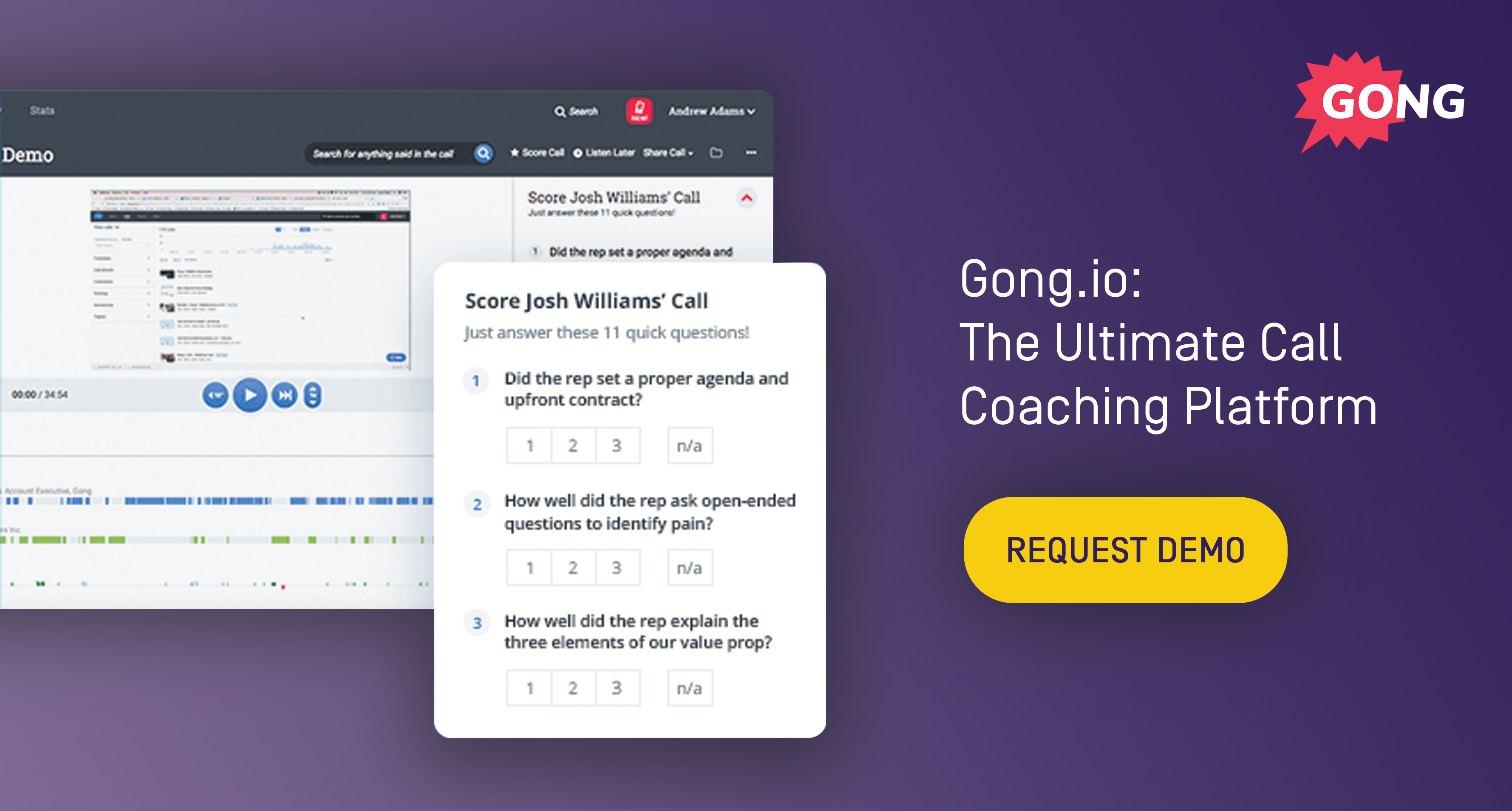
Scoring calls against your sales call process helps you drive consistency across your team’s sales conversations.
Instead of having 10 reps handling 10 calls in 10 different ways, you get everyone marching in the same direction.
The result is a symphony of highly effective sales conversations.
If you want to see Call Scorecards (and the rest of the Gong.io platform) in action, click the banner below to request a demo.

If you liked this article you may also be interested in:

Content Author
Chris Orlob is the Co-Founder and CEO of Pclub.io, a leading sales training platform designed to help sales professionals accelerate their revenue growth. He is best known for his pivotal role at Gong, where he helped scale the company from $200,000 to $200 million in ARR, contributing to a $7.2 billion valuation. During his tenure at Gong, Chris led the creation of Gong Labs and excelled in various go-to-market roles. Today, through Pclub.io, he leverages his deep expertise in sales and revenue operations to coach over 11,000 SaaS sellers.
Discover more from Gong
Check out the latest product information, executive insights, and selling tips and tricks, all on the Gong blog.
